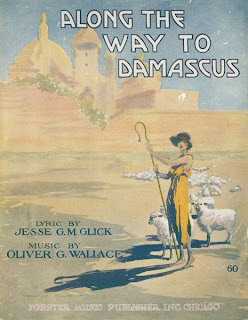Hasiti
(There is a little 'tent' over both 'i's, but my program doesn't allow me to type those.
Sorry.)
'Hasiti' is Kurdish for
PEACE
So much unrest, cruelty and disunity around the world these last months.
Floods, droughts, tsunamis, hurricanes, tornadoes.
If I did not believe that God has a plan,
and that He is ultimately in control
I would be very depressed.
Fortunately, God left me His Word - His plan for my life, and for yours -
in the Holy Bible.
The Bible has been translated into hundreds of languages,
so for certain I am not getting into any discussions about
'which translation is correct'.
As long as the translation is originated- and keeps the spirit and meanings of-
the original documents, then I am happy.
the original documents, then I am happy.
And I think, so is God.
I had some questions about an earlier blog, where I used
G-d to represent the word 'God'.
First, the capitalization:
I believe there is only one true God, and that He is
'God over all other gods'.
See the difference in meaning there?
Just as Jesus is mentioned as 'Lord over all other lords'.
The capital letter (G or L) shows the 'top boss' so to speak!
Second, the missing vowel:
In the original, ancient language that the earliest Words of God were written,
there was no word for 'God' as we use it today.
In ancient biblical Hebrew, the closest English equivalent is
YHVH {called the tetragrammaton}.
Biblical Hebrew contains no vowels, so we don't know for sure how the name of
GOD was pronounced.
YHVH means "I AM"
Some scholars believe the pronunciation to have been
"Yahweh"
but this is only an educated guess.
In ancient biblical Hebrew, the closest English equivalent is
YHVH {called the tetragrammaton}.
Biblical Hebrew contains no vowels, so we don't know for sure how the name of
GOD was pronounced.
YHVH means "I AM"
Some scholars believe the pronunciation to have been
"Yahweh"
but this is only an educated guess.
Jews have traditionally believed that it is wrong to mention God's name and will not do so.
It is in extreme respect for God that He was so holy- that He did not have a name that we, as unholy peoples, could say aloud much less write down.
It is in extreme respect for God that He was so holy- that He did not have a name that we, as unholy peoples, could say aloud much less write down.
Some people call it "the Name that cannot be spoken"
or
"the Name above all other names".
Very Orthodox Jews, even when writing in other languages,
will leave out the vowels.
In English, "God" will be written
"G-d".
Very Orthodox Jews, even when writing in other languages,
will leave out the vowels.
In English, "God" will be written
"G-d".
As a result, many Jewish people (G-d's chosen people) would be offended if I were to write the word "God", as this is disrespectful.
As a "goyim" (Gentile, non-Jewish person)
you will find that I vary between
God and G-d.
I want to thank Mrs. M. Walker for her kind response to my questions.
An ancient document written in Hebrew on papyrus. Dated around 100A.D.
And now for something competely different!
I do hope all of you have been at least introduced to
"Fawlty Towers", a British comedy series.
This is John Cleese in one of the programs.
He is so hilarious, and his superb crew backs him up perfectly!
Or sets him up perfectly I should say...
In case you missed this from an earlier blog,
Here is Phil Keaggy playing a wonderful song with guitar and vocals:
Such an incredible talent.
c.1919
Oman Bedouin woman casting vote in the state of Bidiya, east of Muscat.
Pakistani boy, 10/2011
Thanks to my Pakistani readers!
Minsk, capitol of Belarusia, 10/2011
Well, the day keeps getting later, so I need to post this
before it is tomorrow!
:0)
inkspired
"Camera Savvy"
original Collage Art Doll by inkspired











Yahweh is Jehovah (He causes to become)in english which is God's personal name. He wouldn't have a personal name if it wasn't his intent for it to be used, just like we all have a personal name. Otherwise we would all walk around being called girl or boy. There are thousands of Gods out there. Why would't the Almighty want to identified as such?
ReplyDelete